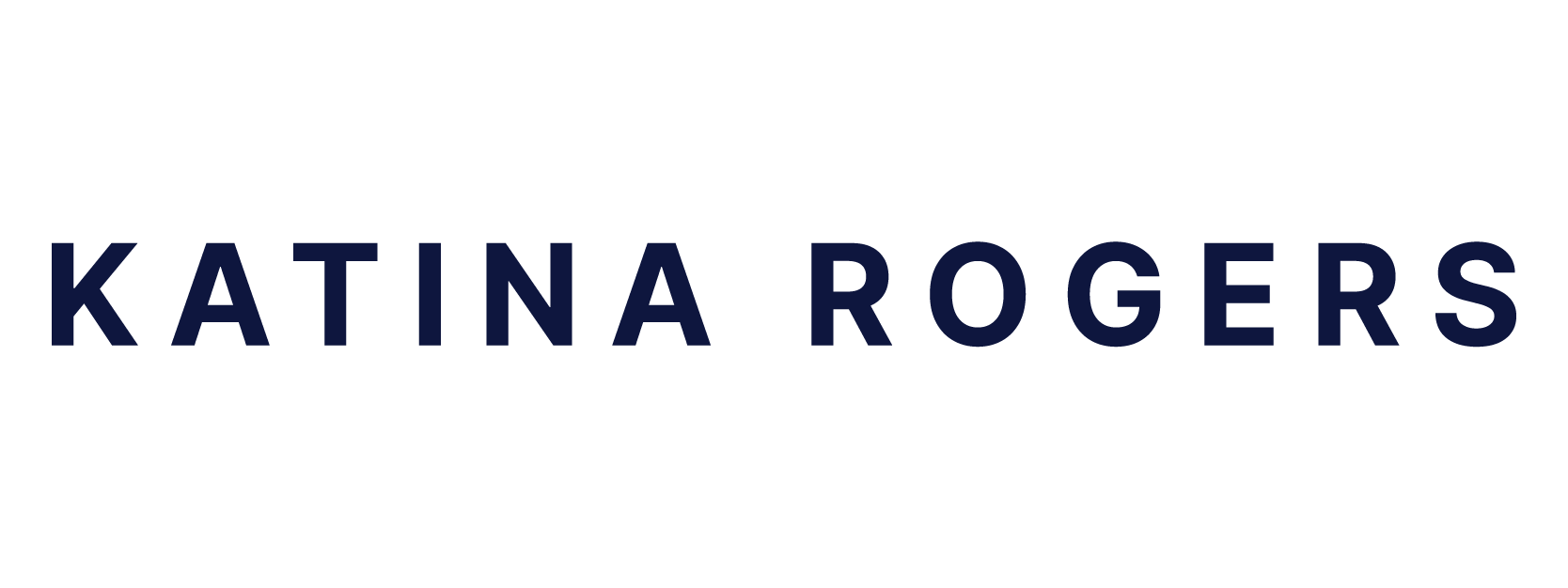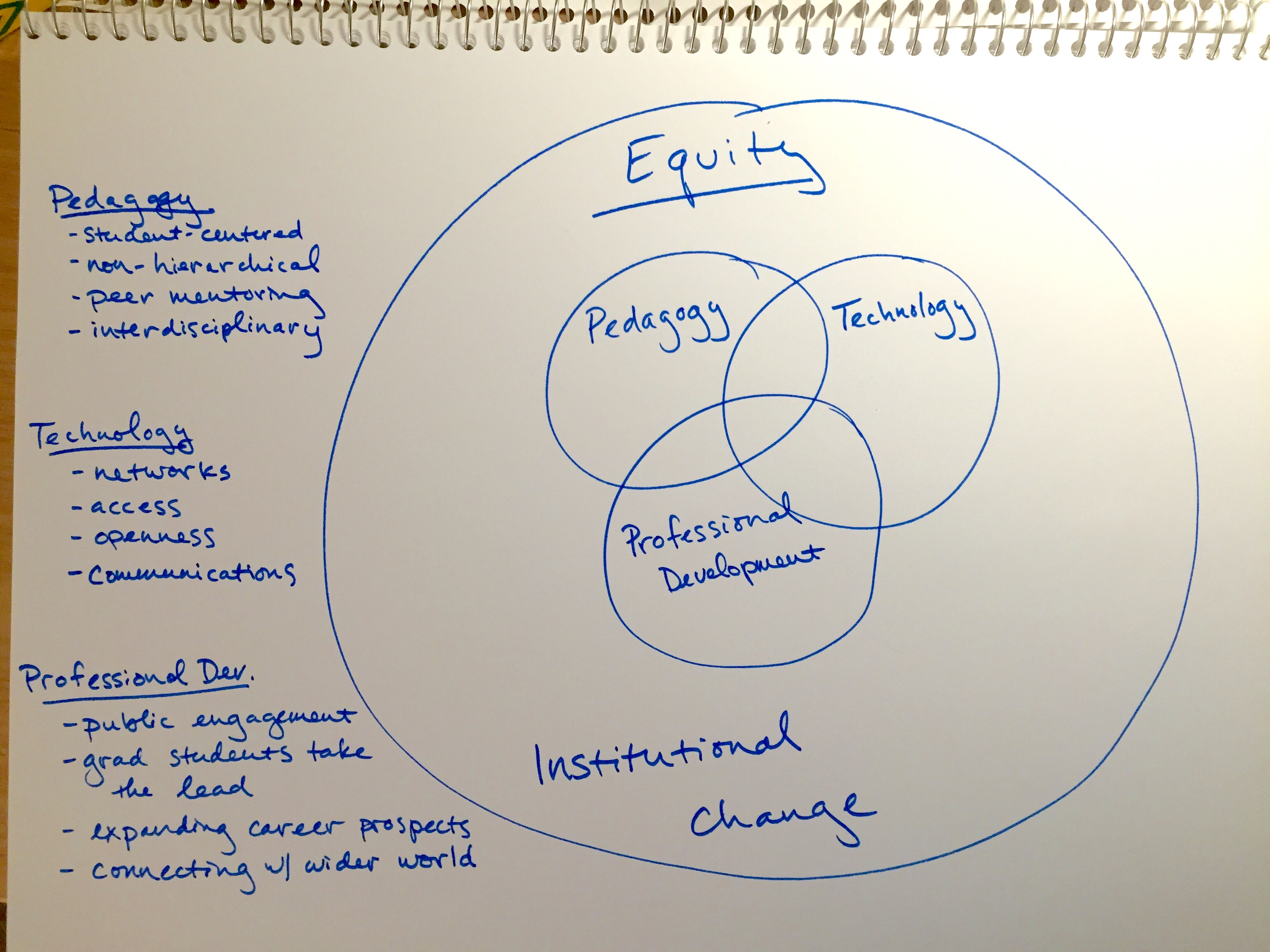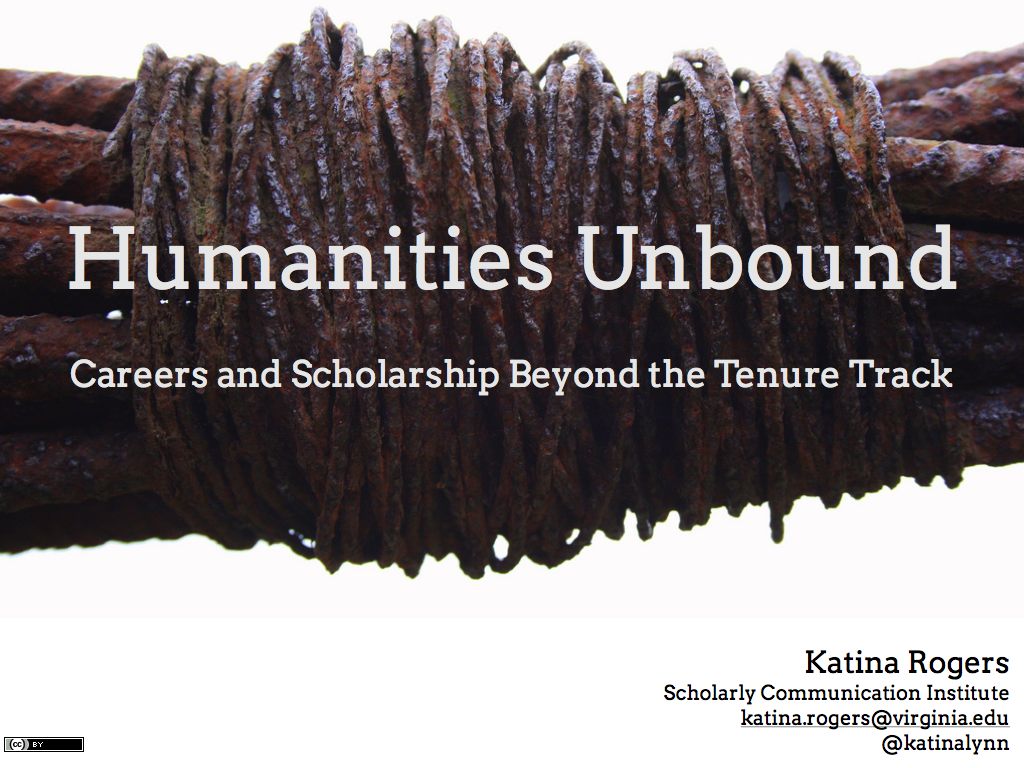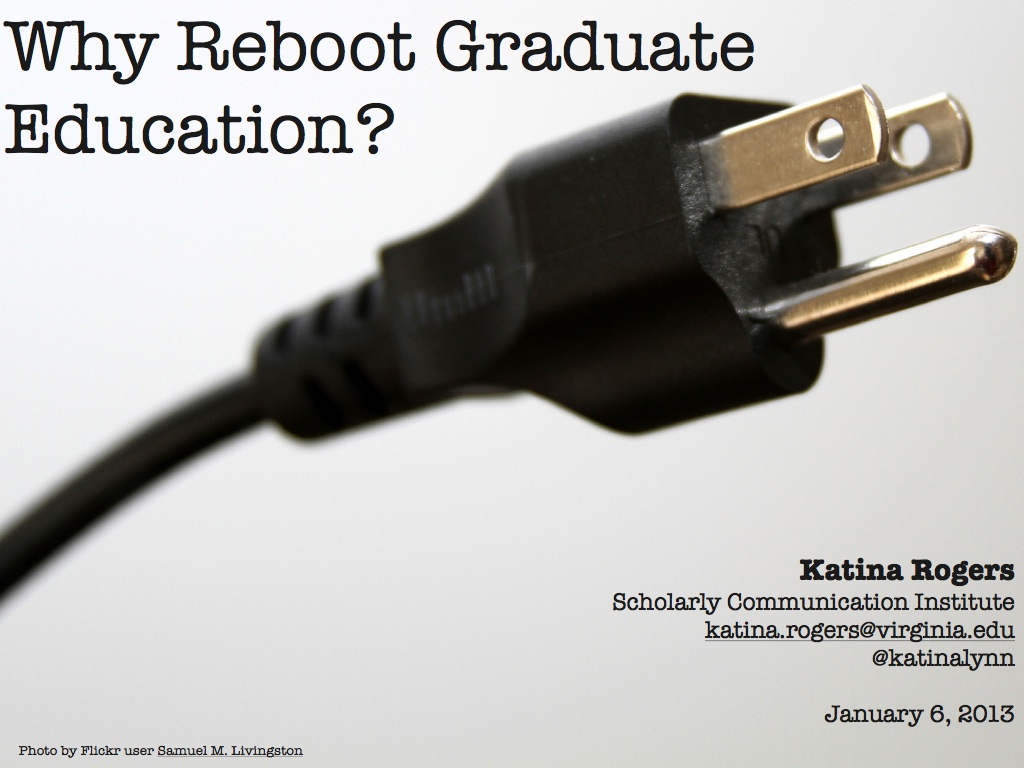The Futures Initiative can be difficult to describe. We work at the intersection of pedagogy, technology, professional development, and public engagement, all in support of fostering a more equitable higher education system for all. We’re trying to find better and clearer ways of saying that, not only through our mission statement, but through all that we do—from programming to written materials to the architecture and design of our website.
We’re in a sweet spot of the academic calendar from a program development perspective—far enough into the summer to feel rested from the slower pace, but close enough to the upcoming semester to be gearing up and getting excited. Yesterday, the Futures Initiative staff and graduate fellows held a mini-retreat to think not only about the activities and programming we plan to host in the year ahead (we’re working on some pretty fantastic events—more on that soon!), but also to take a step back and think about our program’s mission and goals and how we articulate them.
Here’s one of the ideas that emerged from yesterday’s brainstorming session:
I love this simple sketch. To me, the large circle underscores our main goal—equity in higher education—while the three interlocking circles of pedagogy, technology, and professional development clarify our approach to creating institutional change to support that underlying goal. It’s not at all polished, but already it is helping us to think in clearer ways about what we want to undertake in the year ahead, and why.
This process of reflecting on who we are and what we do has been iterative in the best way. We hit the ground running in our first year and made things up as we went, jumping into opportunities that presented themselves and meeting and listening to people with far more depth of experience at CUNY than our little team of three had. When that year ended, we took a breath, reflected on what we had done and what seemed to resonate with the community, and then together with our graduate fellows developed a new mission statement and plan for the year ahead. We can only do this collaboratively, as we think together about what we are proud of, where we can do better, and what our highest aspirations are.
That first reflective process brought about the University Worth Fighting For, a powerful series of events and workshops that addressed equity and social justice through the lens of engaged pedagogy and non-hierarchical learning structures.
With the current political and cultural climate, the aim of fostering structures of equality within and around the university seems more important and urgent than ever. The nuts-and-bolts planning is still to come, so I don’t know yet exactly where we’ll take the program in the year ahead—but I can’t help but think we’re onto something big.




